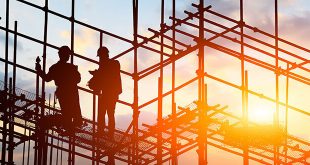President Donald Trump announced tariffs on nearly all U.S. trading partners on April 2. These measures include a universal 10% tariff on all imported goods, effective April 5, 2025, with additional country-specific tariffs commencing April 9, 2025.
Notable increases involve a 54% tariff on Chinese imports, 46% on Vietnamese goods and 20% on products from the European Union. The administration says these tariffs aim to revitalize American industries and address trade imbalances.
“The building supply sector, particularly lumber dealers, will be significantly impacted by tariffs, especially regarding imports from Canada,” says John Carrico, vice president of product management at Epicor. “Distributors that are going to be most successful and able to weather the potential impact of planned tariffs will need to be flexible and adaptable in their approach to supply chain disruption. Part of this approach involves leveraging technologies such as AI and data-driven approaches to improve efficiency and decision-making in this volatile environment.”
Several business organizations, including the U.S. Chamber of Commerce, have issued statements opposing the move, arguing that it could result in retaliatory measures from trading partners and negatively impact American exporters.
“While the complexity of these reciprocal tariffs makes it hard to estimate the overall impact on housing, they will undoubtedly raise some construction costs,” says Buddy Hughes, National Association of Home Builders (NAHB) chairman. “However, NAHB is pleased President Trump recognized the importance of critical construction inputs for housing and chose to continue current exemptions for Canadian and Mexican products, with a specific exemption for lumber from any new tariffs at this time. NAHB will continue to work with the administration to find ways to increase domestic lumber production, reduce regulatory burdens and create an environment that allows builders to increase our nation’s housing supply.”
The National Retail Federation (NRF) conducted a poll on American voters on the tariffs impacting their lives. According to the poll, more than half of the voters believe the tariffs will negatively impact small businesses.
The survey, which was conducted among 2,019 consumers between March 25-27, 2025, also found that most voters believe the government should make bringing down inflation and the cost of groceries their top priority, rather than price-raising policies such as tariffs.
“More tariffs equal more anxiety and uncertainty for American businesses and consumers,” says David French, NRF executive vice president of government relations. “While leaders in Washington may not care about higher prices, hardworking American families do.”
 Hardware Retailing The Industry's Source for Insights and Information
Hardware Retailing The Industry's Source for Insights and Information








